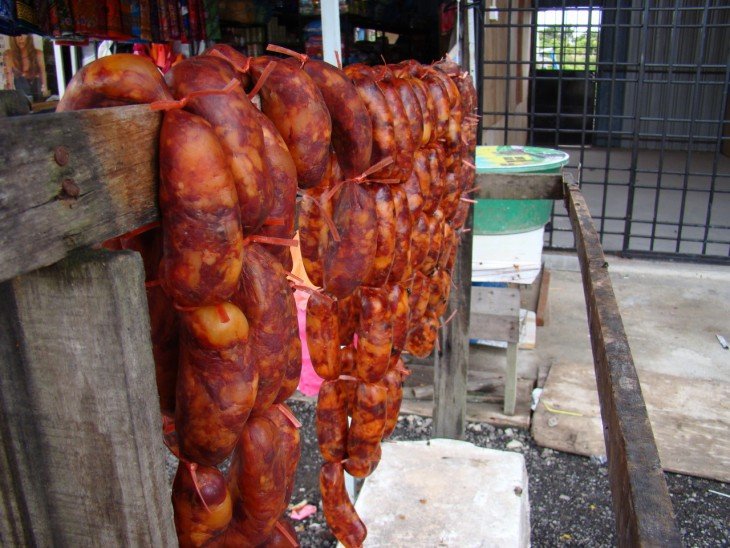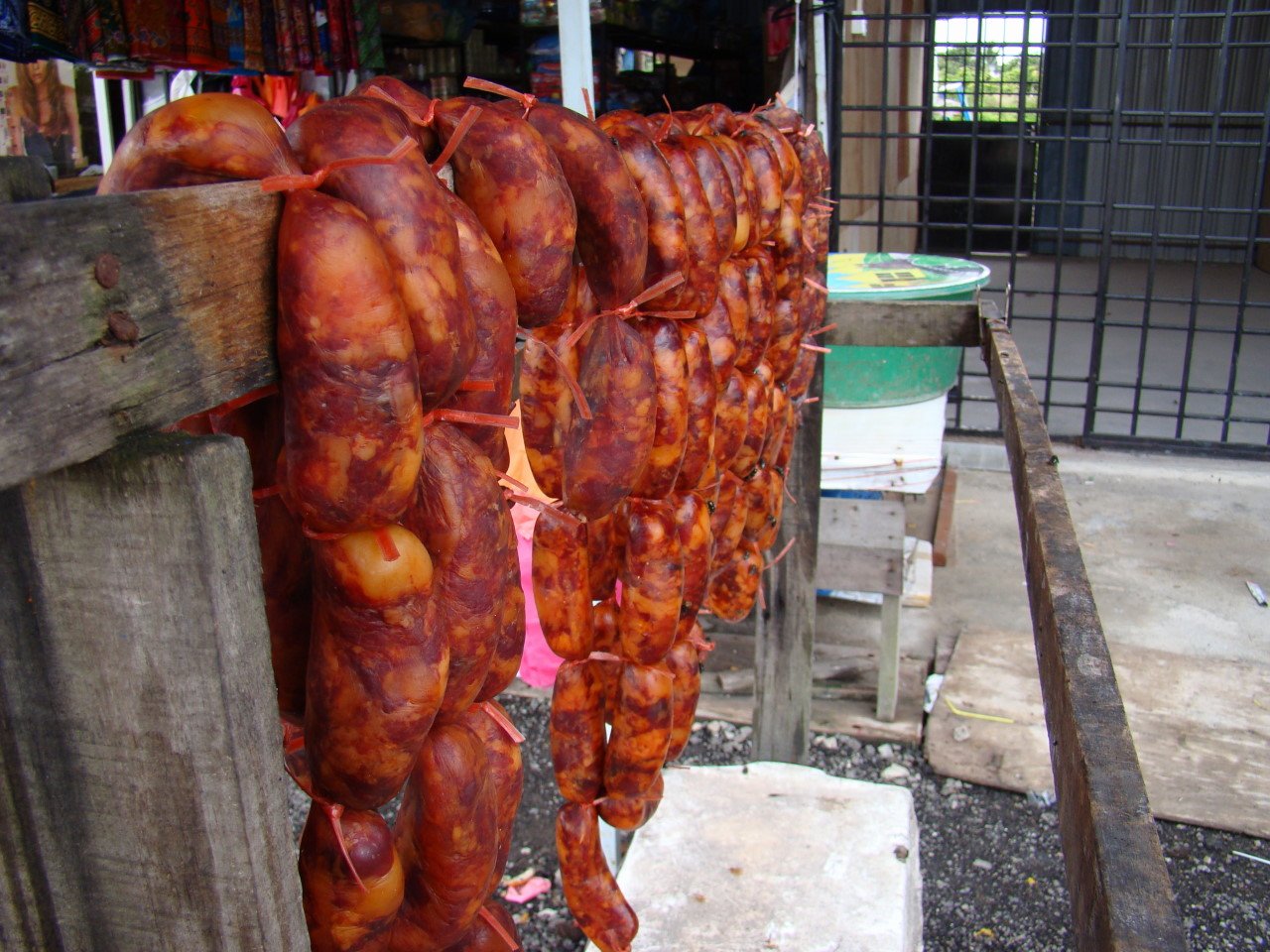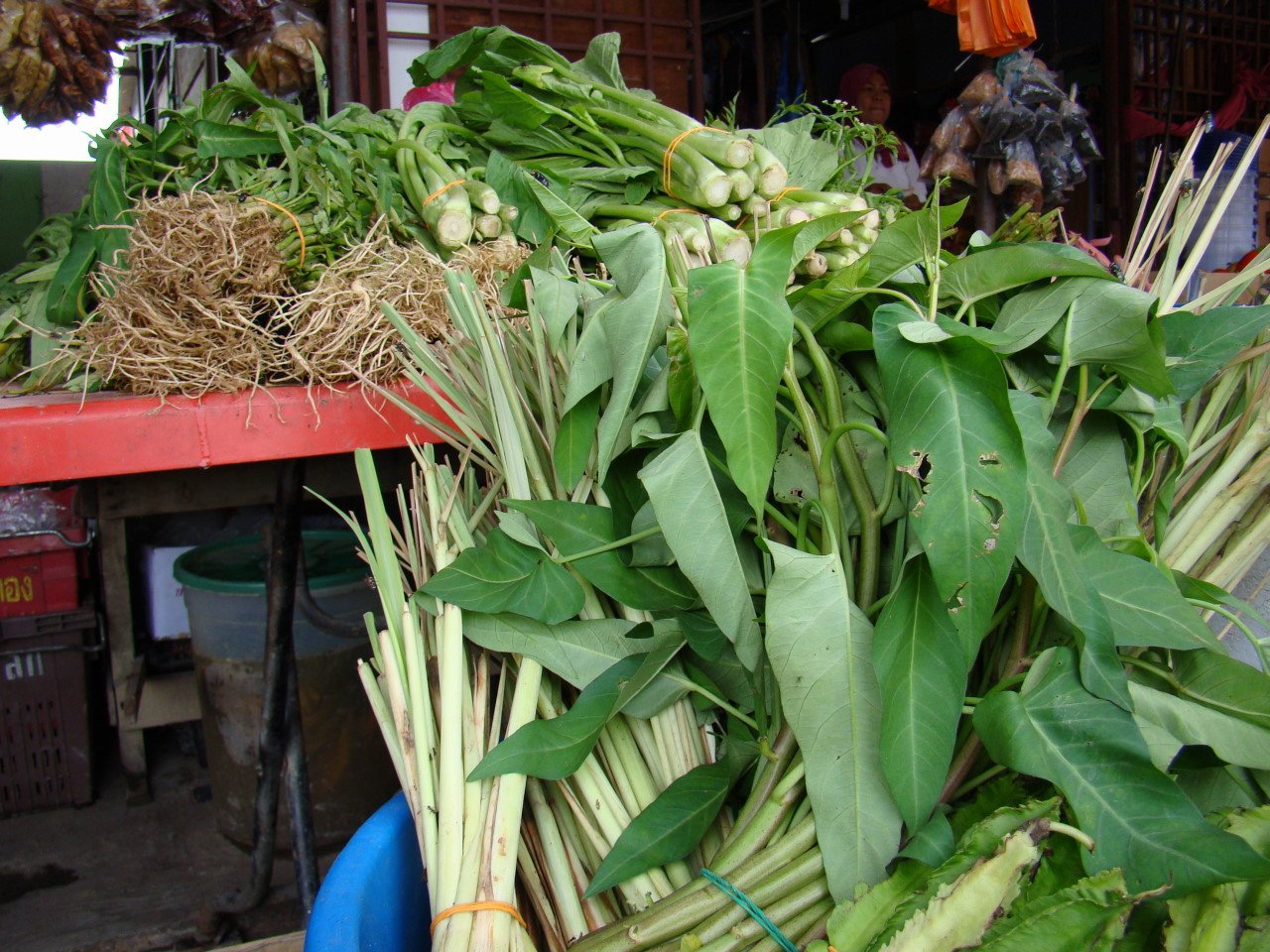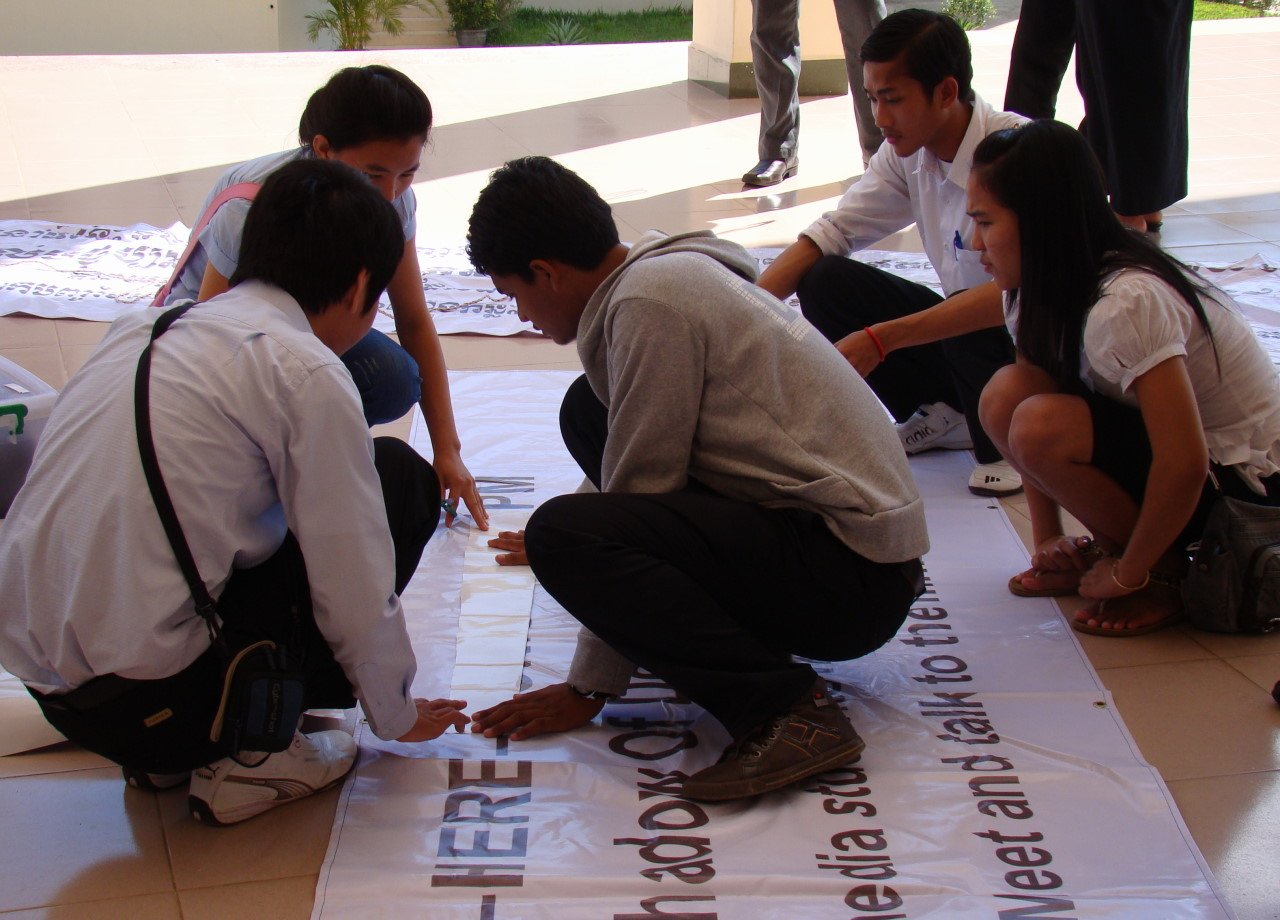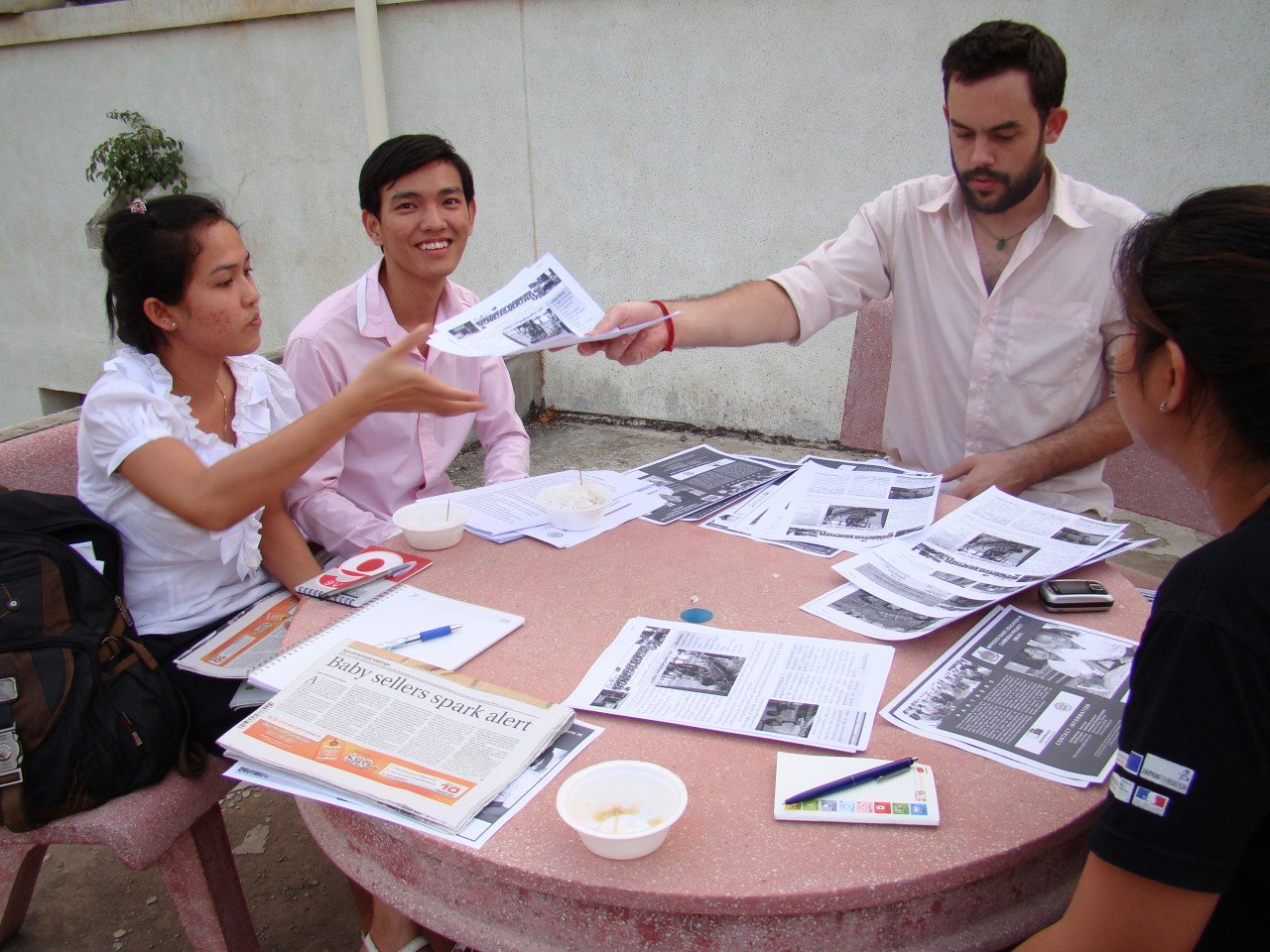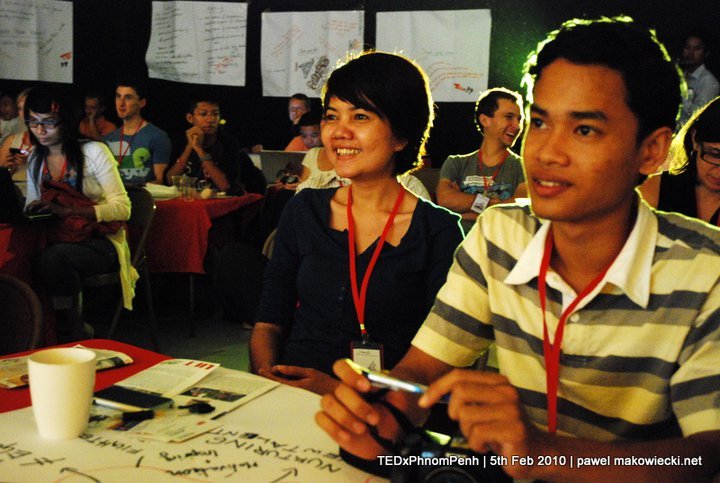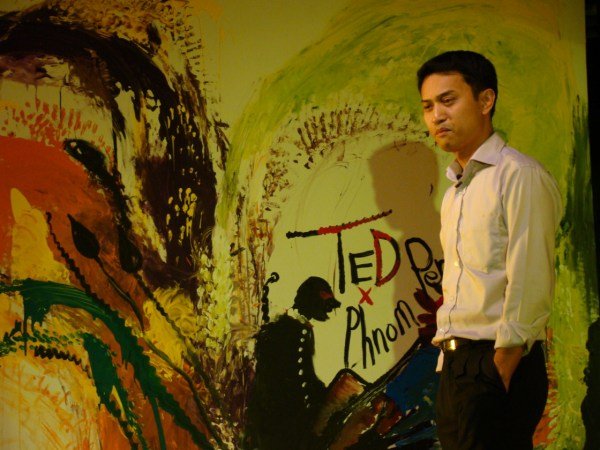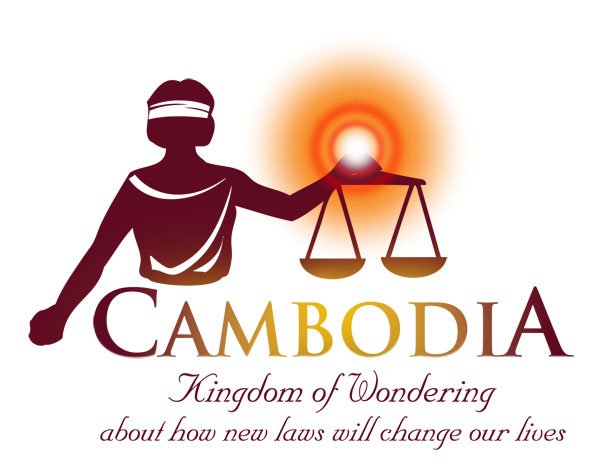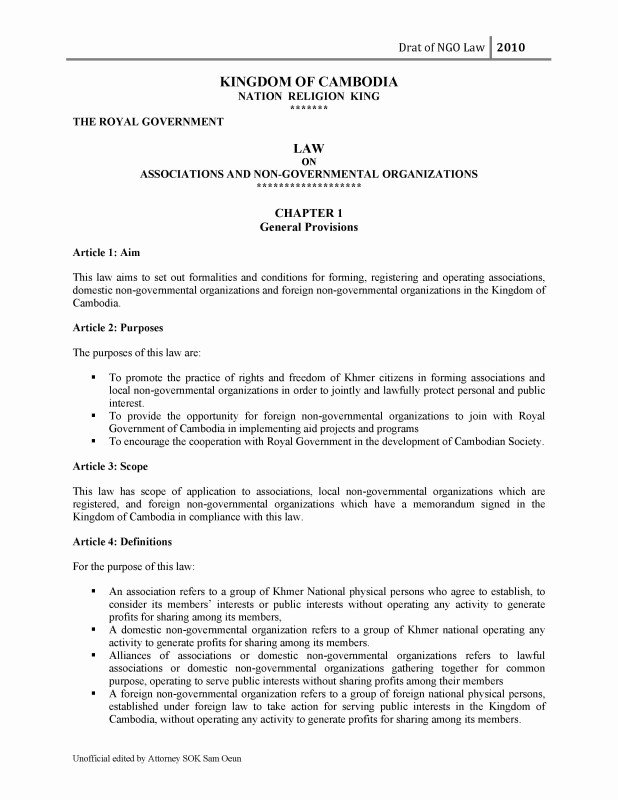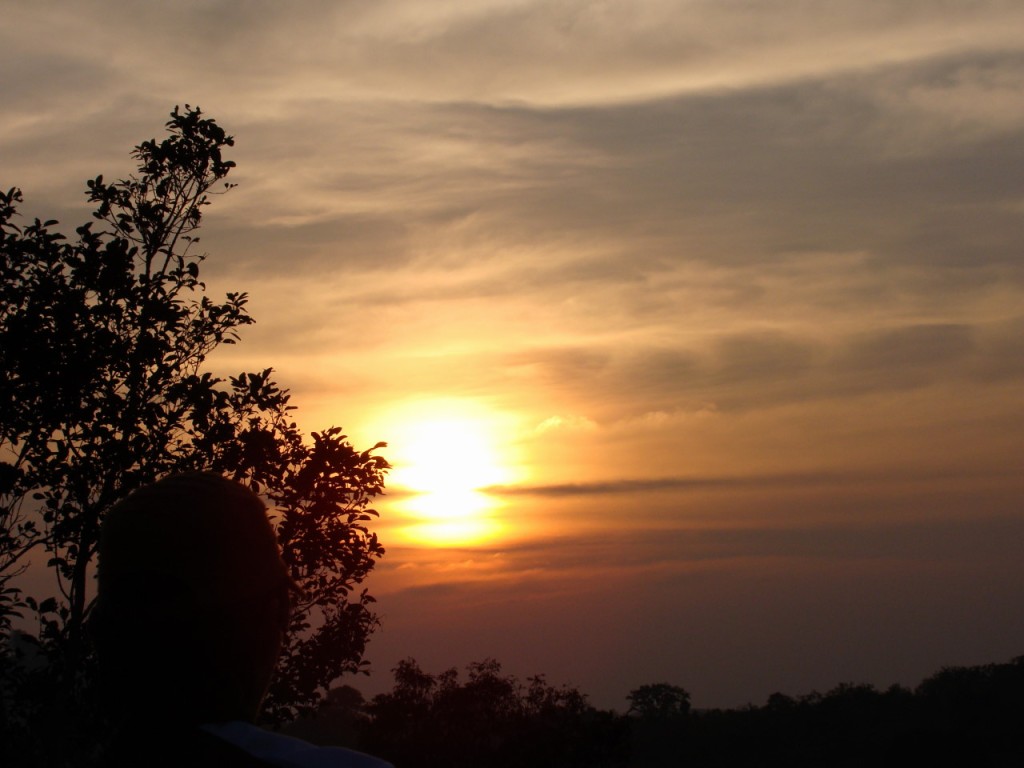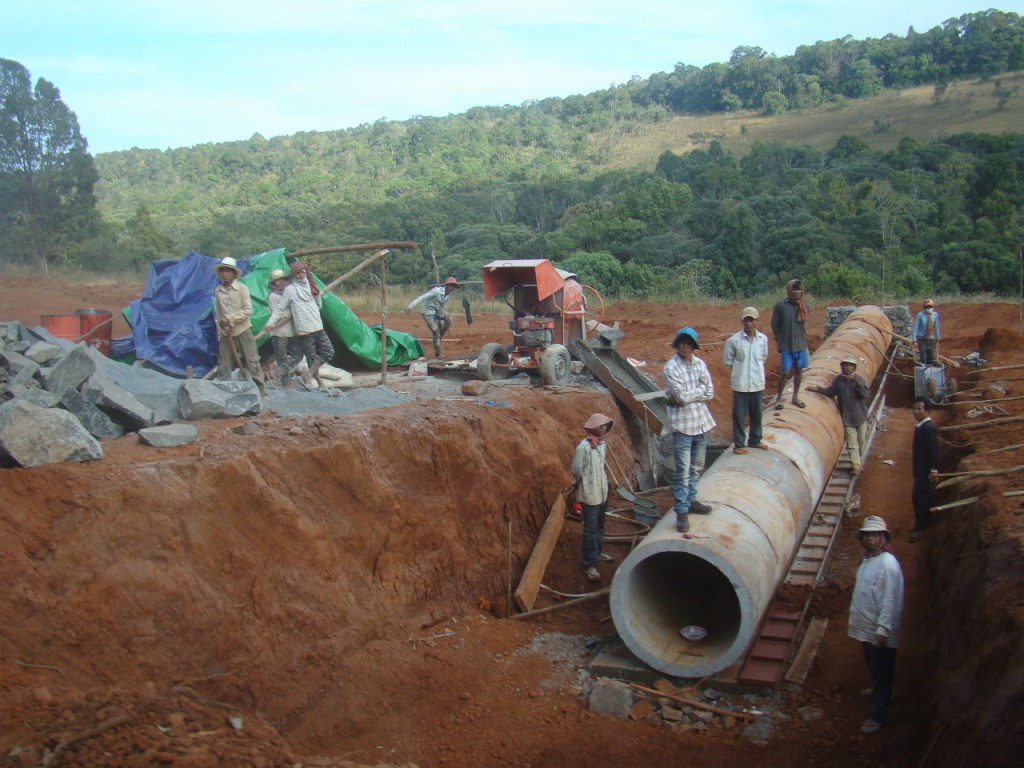I am back again!
Well, today assignment made me get up so early at 7:30am (maybe early for me only lolz!). I set my phone alarm at 7am, but my fingers faster than my eyes that they reached the phone first and turned it off right away. As soon as I got up, I had to rush because I hadn’t prepared anything from last night since I was so tired and sleepy. First, I put some packs of snack and a full bottle of fresh water into my bag because it’s the lesson I learn from my last year intern place at Agence-France Presse (AFP) that a photographer told me to be ready before going out if we have to go somewhere far away that we never know. “The two important things you have to take with you are ‘food’ and ‘water’,” he told me while handing me two packages of instant noodles.
Besides food and drink, I had to search on my messy table for a camera, a recorder, an earphone, a notebook, 2 pen, and reserved batteries for my recorder. Then, I had to surf on the internet for some information of the place before I left.
At 8:30am, I arrived the KL Sentral, where I have to take a train to the Sungai Buloh station. At 9:45am, I arrived the Sungai Buloh station, and had to wait for a Cambodian to pick me up. His name is Tar Sovan, and he is a nice, friendly, and helpful guy. He brought me to the Cambodian village and introduced me to some other Cambodian people. Over there, I first sat on a table order Banh Chhev (a kind of Khmer food), and coffee ice with milk. I was so surprised to see everyone around me is Cambodian even the seller of the food I was eating. While I was eating, I also chit-chatted with some Cambodians to know some backgrounds of the village and to listen to their experiences before leaving for Malaysia. They all have very different but interesting stories to tell.
Lok Pu Savan (‘Lok Pu’ means ‘uncle’ in Khmer because in Cambodian culture, we always call people who are a bit older than us as ‘uncle’) brought me to a Cambodian market and left me there staying with her wife because he wanted to take some rests at home. I went around the market talking to other Cambodian sellers to know more information, and then back to Lok Pu Savan’s wife because she also sells some staffs in the market.
I stayed at her store from 11am until around 2pm before going to her house. We just spent time chit-chatting about this and that. She asked me a lot of questions, especially about my experiences working as a journalist and about my life here in Malaysia. I was happy to tell what I know, but I was stuck when came to a question “Do you already have a girlfriend?”. I think for a moment before replying that ‘I don’t have at the moment’. I was also surprised when she joked that she want me to be her son-in-law. 🙂 I supposed that my face turned red at that time, so I used my flexibility to change the topic and move to talk about life in Cambodia.
I left the market for Lok Pu Sovan’s house at around 2pm. His wife asked a girl to give me a lift from the market to her house, but I became a rider after not trusting her to be able to ride motorbike with me at the back. This is my first time to ride a motorbike in Malaysia, and someone shouted from behind that “Please ride on the left hand side! This is not Cambodia!)”. His house just around 5 minutes riding from the market.
I have spent the rest of my times at their house, but just to talk with their uncles and aunts and watch TV. I could not interview at that time because Lok Pu Sovan wanted to take a nap. His wife also arrived the house later, and I just continued chit-chatting with her.
At around 6:15pm, Lok Pu Sovan said I could stay at his house for tonight or I better go now if I want to come back because it’s almost dark already. His wife also asked me to stay there for a night and back in the morning, but I felt so tired and I had many more tasks to finish that I decided to come back.
I arrived the KL Sentral at 8pm and I had to take a taxi back. This is the first time that I have to bargain the taxi fee. He said the taxi from KL Sentral not uses meter, and he demanded RM20 from KL Sentral to my living place while I spend only RM11 this morning to get there. He said how much will I give him. I decided to give him RM15, so he asked me to go inside the car. 🙂
He’s not a Malaysian. He’s a nice guy and he speak English very fluently. I’ve talked a lot with him, and when I asked him a question about “What do you think about life in Malaysia?”, I seemed to get a satisfied answer. He told me that “Life here is not bad. And I think one thing that is the same for all country, Nothing is free. You have to work for it.” He also asked about Cambodia “IS Cambodia going up now?”, and also ask about Vietname “How about Saigon?”. I think he knows a lot of histories about countries in South East Asia.
Now, I am at my condo again feeling so comfortable but also tired and sleepy. I might sleep early tonight and get up early tomorrow to try finishing works as much as I can.
There are a lot of interesting things happened to me today, but I could not write it all into a post. I hope I could review my post again when I am a bit more free.
27/09/11 By: Dara SaoyuthRelated articles
- My assignment today_26 Sept 2011 (saoyuth.wordpress.com)
- My assignment today_22 Sept 2011 (saoyuth.wordpress.com)
- My assignment today_23 Sept 2011 (saoyuth.wordpress.com)
- Cambodia Circles – a new website specially designed for Cambodians (saoyuth.wordpress.com)
